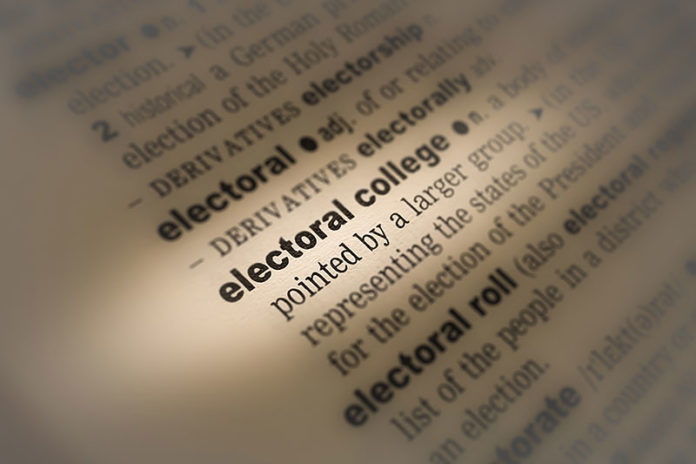Beto O’Rourke didn’t win a Senate seat in 2018, and he isn’t likely to win the presidency in 2020. But he could gain a footnote in the history books as the person who set the Electoral College on the road to extinction.
His home state of Texas is a big, brash Republican stronghold, which gave the nation George H.W. Bush and George W. Bush, as well as Rick Perry and Ted Cruz. No Democrat has won statewide office since 1994. Today, 23 of the state’s 36 U.S. House members are Republicans.
But last year, O’Rourke came close to beating Cruz, who had won his previous race with a 16-point margin. The near-upset raised the prospect that, in the not-too-distant future, Texas Democrats will start winning races that once were hopeless — and will even come to dominate state politics.
One factor is that the state is changing demographically in a way likely to hurt the GOP. Hispanics could surpass non-Hispanic whites in numbers by 2022. Another is that the parts of Texas that are seeing big population gains are places where Democrats are doing well.
Add to this the incumbent president. University of Houston political scientist Richard Murray told CNN, “Trump has sped up everything by four to six years.” It is surprising that in a recent statewide Emerson College poll for The Dallas Morning News, Donald Trump trails Joe Biden in a head-to-head matchup. It is stunning, though, that Trump trails Bernie Sanders. Among Texans.
But the danger of losing the presidential race there next year is not what should trouble Republicans the most. Trump will probably carry Texas, and even if he doesn’t, he won’t be around forever. But chances are the state will soon become purple and eventually blue. There lies the real GOP nightmare: Texas could lock Republicans out of the White House for many elections to come.
For that, they can thank the Electoral College. Three of the five biggest states are already solidly Democratic: California, New York and Illinois. Florida can go either way. Republicans have been able to win the presidency while losing the popular vote twice in this century partly because they could count on Texas, now the second-most populous state.
If the Lone Star shifts to the Democrats, however, they will start each campaign with a heavy Electoral College advantage. In that case, Republicans will face a huge challenge to win the presidency even if they can win the popular vote.
They may not be able to imagine losing power in a state synonymous with pickup trucks, guns and high school football. But there was a time when Republicans dominated California. Thanks in part to their alienation of Latinos and other ethnic minorities, they have lost it in seven straight presidential elections — after winning the previous six in a row.
Now would be a good time for Republicans to rethink their attachment to the Electoral College. They have defended as a vital shield for small states against big ones. They say it would be unfair to let California decide outcomes — as they say it would have done in 2016 if the popular vote had been decisive. Hillary Clinton beat Trump by more than 4.2 million votes there, more than accounting for her national edge of nearly 3 million votes.
They also warn that without the Electoral College, a few big cities would dominate the process, at the expense of rural areas and states. What they ignore is that 1) the 10 biggest cities have only 8% of the U.S. population, and 2) urbanites don’t all vote the same way.
Trump got nearly 4.9 million votes in California and 2.8 million in New York — many of them in small towns and rural counties — but under the Electoral College, those votes meant nothing. Someday, the same may be true for all the conservatives in Texas.
Democrats take the peculiar view that each citizen’s vote should carry the same weight. They also contend that the candidate who gets the most votes from actual people should win — which happens to be how races for virtually every other office in the country are decided.
If Republicans want to salvage their future, they would be wise to join with Democrats now in pushing to elect presidents by popular vote. Because once Democrats have the upper hand in the Electoral College, they may just decide to keep it.



























